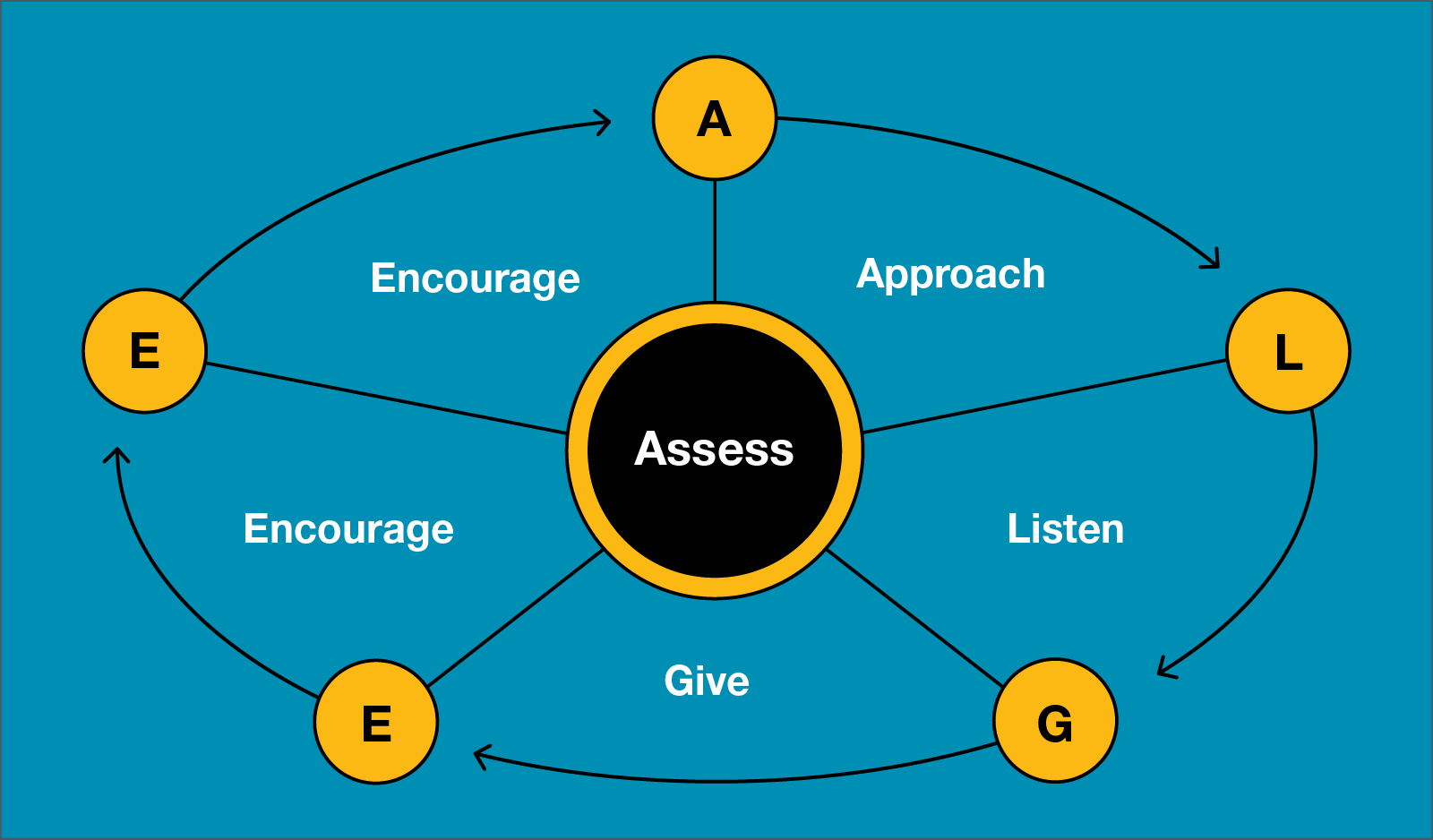Supporting Students in Distress
Students may experience stress across various aspects of their lives. Harvey Mudd College community members can learn to recognize signs of students in distress, respond appropriately and refer students to resources and services that will maintain a safe and healthy campus environment.
Recognize the Signs
We are all vulnerable to distress at various times in our lives. Distress may be the result of a specific acute stressor or a long-term chronic condition. Being aware of the signs of distress can help you identify them in people who may need help.
It can be difficult to know what is typical stress and what is concerning behavior that requires intervention. Ask yourself, ‘Does this behavior differ from my previous experiences of this person?’ Changes in baseline personality can be clues that intervention is needed. Other signs may include:
Academic Signs
- Turning in work late
- Decline in work/grades
- Not attending classes/repeated absences
- Concerning content in writing, emails or presentations
- Disruptive in class
Physical and Psychological Signs
- Change in appearance (hygiene, weight, etc.)
- Fatigue, tiredness or sleep issues
- Substance abuse
- Poor concentration
- Sadness, anxiety, anger or other significant mood change
Signs of a Crisis
- Expressed desire/intent to harm self or others
- Highly disruptive behavior (hostility, aggression, violence, etc.)
- Disorientated and out of touch with reality
- Inability to function/meet basic needs
ALGEE Action Plan
If you’re concerned about a student, please don’t delay in offering support or consulting with someone who can help. ALGEE is a step-by-step action plan you can use when providing support to someone experiencing a distressing situation. These steps can be used in any order, and your approach will likely be different with each person you work with.
Approach, assess for risk of suicide or harm.
Try to find a suitable time or place to start the conversation with the person, keeping their privacy and confidentiality in mind. Express your concern using “I” statements (i.e. “I’ve noticed you seem down these past few weeks”). If the person does not want to confide in you, that is OK. Encourage them to talk to someone they trust.
Listen nonjudgmentally.
Many people experiencing a challenge or distress want to be heard first, so let the person share without interrupting them. Try to have empathy for their situation. Try to be accepting, even if you don’t agree with what they are saying. Often, the simple act of listening can be incredibly helpful.
Give reassurance and information.
After someone has shared their experiences and emotions with you, be ready to provide encouragement and useful facts about resources available to them.
Encourage appropriate professional help.
The earlier someone gets help, the better their chances of recovery. So, it’s important to offer to help this person learn more about the options available to them.
Encourage self-help and other support strategies.
This includes helping them identify their support network, programs within the community and their own self-help strategies (i.e. taking breaks, being active, getting sleep and hobbies).

Additional Tips
Each situation is unique. Use these important tips to determine the most appropriate response for a distressed student.
- Safety first: If there is an imminent danger to the student, to you or to anyone else, you should not handle this on your own. Dial Campus Safety 909.607.2000 immediately.
- Submit a Mudders Care for Mudders report to alert the HMC Care Team of your concerns.
- Not everyone is ready to get help. Remain patient, friendly, and open. The person may want help in the future.
- Example script: “I care about you and I’ve noticed a change in ________. I am here if you want to talk. There are also people who are trained to help you work through these feelings.”
Resources
- Campus Safety (24/7 Service) 909.607.2000
- Monsour Counseling and Psychological Services (24/7 Crisis Support) 909.621.8202
- Division of Student Affairs Office (Monday–Friday, 8 a.m.–5 p.m.) 909.621.8125
- TimelyCare (24/7 Virtual Care)
- EmPOWER Center 909.607.2689
- National Suicide Prevention Lifeline: Call or Text 988
- Crisis Text Line: Text HOME to 741741
- Trans Lifeline 877.565.8860